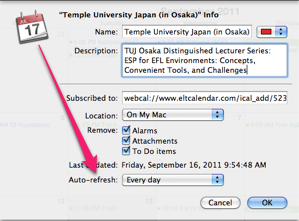Kyoto JALT:
�Issues In Secondary School English: A morning at Kyoto JALT
Date: Saturday, October 8th, 2016 Time: 9:00 AM - 12:00 PM
Speaker: Melodie Cook (University of Niigata Prefecture), Rintaro Sato (Nara University of Education)
Description:
This event brings together two diverse speakers to talk about separate yet crucial issues for teachers, both Japanese and non-Japanese, in secondary education. Current and former junior high school and high school teachers are especially welcome.
Status, roles, and fairness: Expatriate secondary English teachers and entrance examination creation
Dr. Melodie Cook, University of Niigata Prefecture
Entrance examinations are a significant part of life in Japan as they are said to enable the social mobility of citizens; although contemporary economic and demographic forces may be proving the opposite, many Japanese continue to believe that once students enter prestigious universities, they are guaranteed good jobs upon graduation. Although entrance examinations are commonly believed to be objective and fair in stratifying students, expatriate faculty participating in their creation often call viewpoint into question. This presentation reports on expatriate high school English teachers? beliefs about and perceptions of the entrance examination construction process and common themes that arise for them, such as how they are treated differently from their Japanese colleagues, examples of social hierarchy at work in decision making, and issues surrounding fairness in scoring procedures.
Dr. Melodie Cook has been teaching ESL/EFL in Canada and Japan since 1991.She is currently an Associate Professor at the University of Niigata Prefecture. Her research interests include teacher education in Japan, the influence of entrance examinations on secondary and tertiary education in Japan, and how expatriate families navigate the complexities of Japan's educational system. She has previously been on the editorial board of JALT Journal. She is also an advocate for adoption and fostering.
Conducting English Lessons (almost) All in English and The Judicious Use of the Japanese Language: Why? and How?
Dr. Rintaro Sato, Nara University of Education
Language acquisition or learning is input-driven. It is crucial for learners to be given a great amount of L2 (English) input. From the point of view of second language acquisition theories, it is clear that teachers should conduct their English classes in English to provide students with a lot of highly quality of input, and then lead them to speak English. However, having English as the primary language does not mean that there should be no use of Japanese. I suggest that teachers should (can) use the Japanese language effectively and selectively when needed in a minimum fashion. For example, in teaching grammar or pronunciation, explaining abstract, complicated concepts, developing a good rapport, and so on. In my presentation, I will talk about the importance of English-medium classes and the reasons, and crucial roles of the Japanese language.
Dr. Rintaro Sato is professor at Nara University of Education. He received a Master?s degree from Tsukuba University and earned his Ph.D. in Education at Hyogo University of Teacher Education. His research interest is in incorporating theories of second language acquisition into the Japanese EFL classroom. He has been excited about wonderful performances? of All Japan rugby team in the last World Cup and the Olympic games!
Organization: Kyoto Chapter of the Japan Association for Language Teaching (Kyoto JALT)
Cost: JALT Members: free
Non-members: 500 yen (free for full-time students with ID)
Venue: Campus Plaza Kyoto (map)
Location: Kyoto City, Kyoto Prefecture, Japan
![]() Add this to iCal
Add this to iCal
![]() (Need help?)
(Need help?)
![]() Add to Outlook
Add to Outlook
![]() (Need help?)
(Need help?)
You can add this event to your iCal calendar.
- Click on the iCal icon. Your iCal software will start.
- Click 'Subscribe':

- Under 'Auto Refresh', select 'Every day' in case the the basic details change:

You can add this event to your Microsoft Outlook calendar.
- Click on the MS Outlook icon.
- See what happens.
- Tell us what happens. I don't have MS Outlook on a Windows computer, so I can't test it.
- If you click on the icon and nothing happens, do this:
- Right-click on the icon and save the file.
- According to Microsoft's support page, in Outlook's File menu, you should click Import and Export.
- Click to select Import an iCalendar or vCalendar file (*.vcs), and then click Next.
- Click to select the vCalendar file you've just saved, and then click Open.
Contact Kyoto JALT
Website: http://www.kyotojalt.org
Email QR Code:





